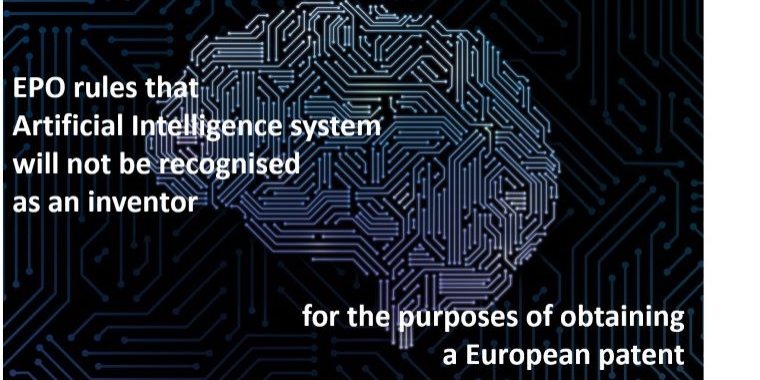Mon 10th Jan 2022
EPO rules that AI will not be recognised as an inventor for the purposes of obtaining a European patent
Services: Obtaining a patent, Patents
Sectors: AI and data science, Software patents
The European Patent Office (EPO) has ruled that an AI system will not be recognised as an inventor for the purposes of obtaining a European patent as, unlike a human, a system does not have legal capacity.

On 21 December 2021, the Legal Board of Appeal at the European Patent Office (EPO) published its decision (in cases J 8/20 and J 9/20) confirming the decisions of the Receiving Section of the European Patent Office to refuse the applications in which an artificial intelligence system called DABUS was designated as the inventor.
It is important to note that this case was not about whether or not an AI invention was patentable. Rather this case focused solely on the issue as to whether the AI system itself could be named as inventor.
Designation of the inventor
According to the European Patent Convention (EPC) the designation of the inventor is a formal requirement which a patent application must fulfil according to Article 81 EPC and Rule 19(1) EPC.
Assessment of this formal requirement takes place prior to and independently from the substantive examination, and this stage involves no consideration as to whether the subject matter of that application meets the requirements of patentability.
According to Article 60(1) EPC the ‘right’ to a European patent belongs to the inventor or his successor in title.
Inventors must be human under EPC
The EPO confirmed that:
- under the EPC the inventor had to be a person with legal capacity. For this reason, designating a machine as inventor did not comply with the requirements set out in Article 81 and Rule 19(1) EPC; and
- a machine could not transfer any legal rights to the applicant. Consequently, the applicant (Stephen Thaler) could not be a successor in title because ownership of the machine did not satisfy the requirements of Article 81 EPC in conjunction with Article 60(1) EPC.
This follows a similar case in the UK, which also failed on the grounds that naming a machine as inventor did not meet the requirements of the Patents Act 1977.
Patentability and AI
Page White Farrer has extensive experience in working with AI developers to secure patents for their solutions – see our page on IP protection for AI and data science.
Free initial consultation for AI developers
We offer a free initial consultation, to discuss your objectives and the approach that we would take to protecting the intellectual property in your AI business.
We can provide an initial view of the likelihood that these could be protectable, both in the UK and abroad. We can also provide an outline of the costs and procedures required to obtain protection, and we will suggest the next steps that need to be taken.
Click here to request an IP consultation.
This briefing is for general information purposes only and should not be used as a substitute for legal advice relating to your particular circumstances. We can discuss specific issues and facts on an individual basis. Please note that the law may have changed since the day this was first published in January 2022.


